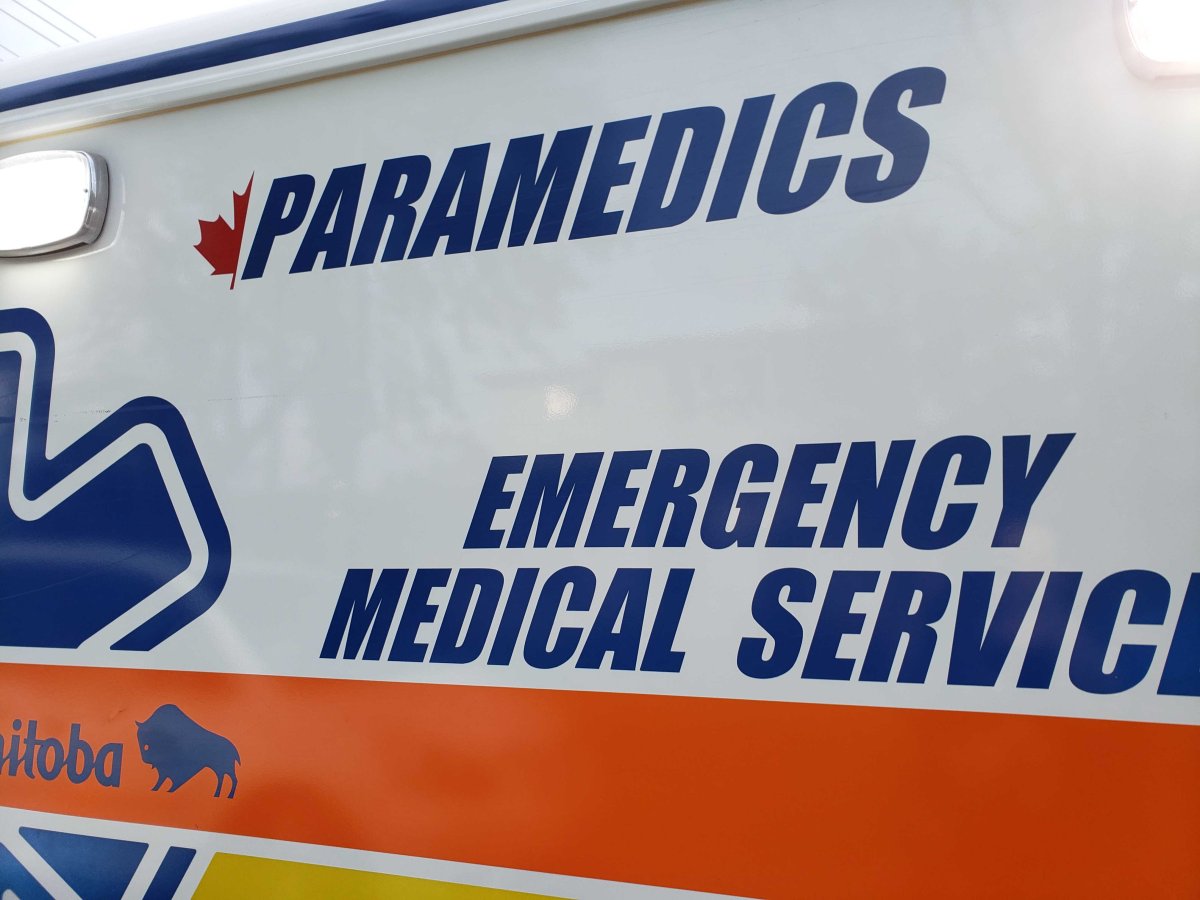A report presented to Winnipeg’s Executive Policy Committee Wednesday suggests the city’s 911 service could be improved if there was better coordination between the various agencies at work, and societal issues that lead people to call for help were addressed.

Commissioned in 2019, the study by the Harvard Bloomberg City Leadership Initiative says the city has a solid foundation to build upon, but the emergency service isn’t designed for the current reality and lacks the infrastructure to put all the pieces to use most effectively.
“It really provides us with a roadmap for future decisions, future discussions, that could really make a difference in the lives of our residents,” said Mayor Brian Bowman, adding he had already provided a copy to Justice Minister Cliff Cullen.
“I believe the provincial and federal governments are aligned with the intent, which is: how do we ensure that the right resources respond to calls for service. That’s really what it’s all about. We want to make sure we’re using resources efficiently, but also we’re just getting the right people at the right time to help our residents.”
Using data from the Winnipeg Police Service (WPS), the report points out roughly half of all 9-1-1 calls are “non-emergent,” where an emergency is described as a crime in progress, property or people are at risk, or a life-threatening medical situation.
And yet, for the 50 per cent of calls where that is not the case, the existing system dispatches police, Winnipeg Fire Paramedic Service (WFPS), and EMS anyway.
When these calls are triaged through WPS, the report says they’re mainly for “assistance,” or “medical assistance,” which includes anything from general wellbeing checks, to mental health and intoxication, and “disputes.”

On the WFPS side, the majority are related to socially isolated elderly people, people struggling with medication compliance, people with mental health conditions, and others with chronic health issues.
Most of these situations, the report says, could be addressed before they become 9-1-1 calls if the root social issues were addressed, or if people were aware of and had easier access to the litany of non-profits and other resources already at work in Winnipeg.
Thus, the study suggests a “fourth branch” of emergency services that is both reactive and proactive; able to quickly resolve non-emergent issues, and also be directed by the other three services to individuals who need support but don’t know how to navigate the system.

Get weekly health news
Besides the three “official” services, there is not a dispatchable option for “non-emergent” crises, but the authors describe a handful that have the potential:
- Mobile Crisis Unit: Despite its name, this Winnipeg Regional Health Authority (WRHA) program is not physically mobile, but is a telephone service people can call if they or someone nearby is experiencing a mental-health or other psychosocial crisis.
- Emergency Paramedics in the Community (EPIC): A WFPS secondary service that is called upon by EMS arriving at the scene of a non-emergent event, and sometimes responds to calls from previous patients.
- Vulnerable Persons Unit: A division of the WPS consisting of a uniformed police officer and a social worker. They are sent in after a regular police unit has attended and assessed the situation.
- 211 Manitoba: At the time the report was written, this service managed by United Way Winnipeg and Volunteer Manitoba operated only as a website, text, and online chat, but has since become an actual phone number people can call. An operator asks the caller various questions and can refer them to the appropriate non-profits or other resources.
The report makes reference to several programs across North America that could serve as a model for this new branch, such as the Mobile Crisis Rapid Response Team (MCRRT) at work in Hamilton, Ontario.
“The immediate benefit to the community was the ability to get to people as the crisis was occurring,” said Satar Wahidi, who manages the program out of St. Joseph’s Healthcare Hamilton.
“Having a first response in some ways is the most important because we want to have that initial engagement that goes well, and we’re off to the right start in the interaction.”
“I think in similar models where there’s a co-response or the mental-health worker arrives later onto the scene … if it doesn’t go positively it could take some recovering.”
Indeed, the authors note that prior to the program’s introduction around 2016, the apprehension rate for people in crisis was 75.4 per cent. That’s down to 22 per cent in 2019.
Right now MCRRT is made up of three teams that work overlapping 12-hour shifts so the service is operational 24/7.
Each team consists of a mental-health worker and a uniformed police officer who has undergone specialized Crisis Intervention Team (CIT) model training.
Wahidi says those officers don’t rotate, and are designated to that team.
“Depending on the person they could be the lead just as much as the mental-health worker,” Wahidi said. “Especially officers that we’ve had for several years, they become quite equipped to participate in the work. They’re not just standing in the background.”
Wahidi says the eventual goal is to give every officer CIT training.
The primary hurdle to getting the program up and running after the pilot showed promising results in 2015 was setting aside the money for staff, Wahidi says.
A similar system in Winnipeg may be more complicated to get off the ground, since the siloed agencies at work would need to be brought under one umbrella, some may need to be overhauled and some scrapped entirely.
Coun. Scott Gillingham (St. James) says the new initiative will be “positively disruptive,” and calls the report “a new beginning point.”













Comments